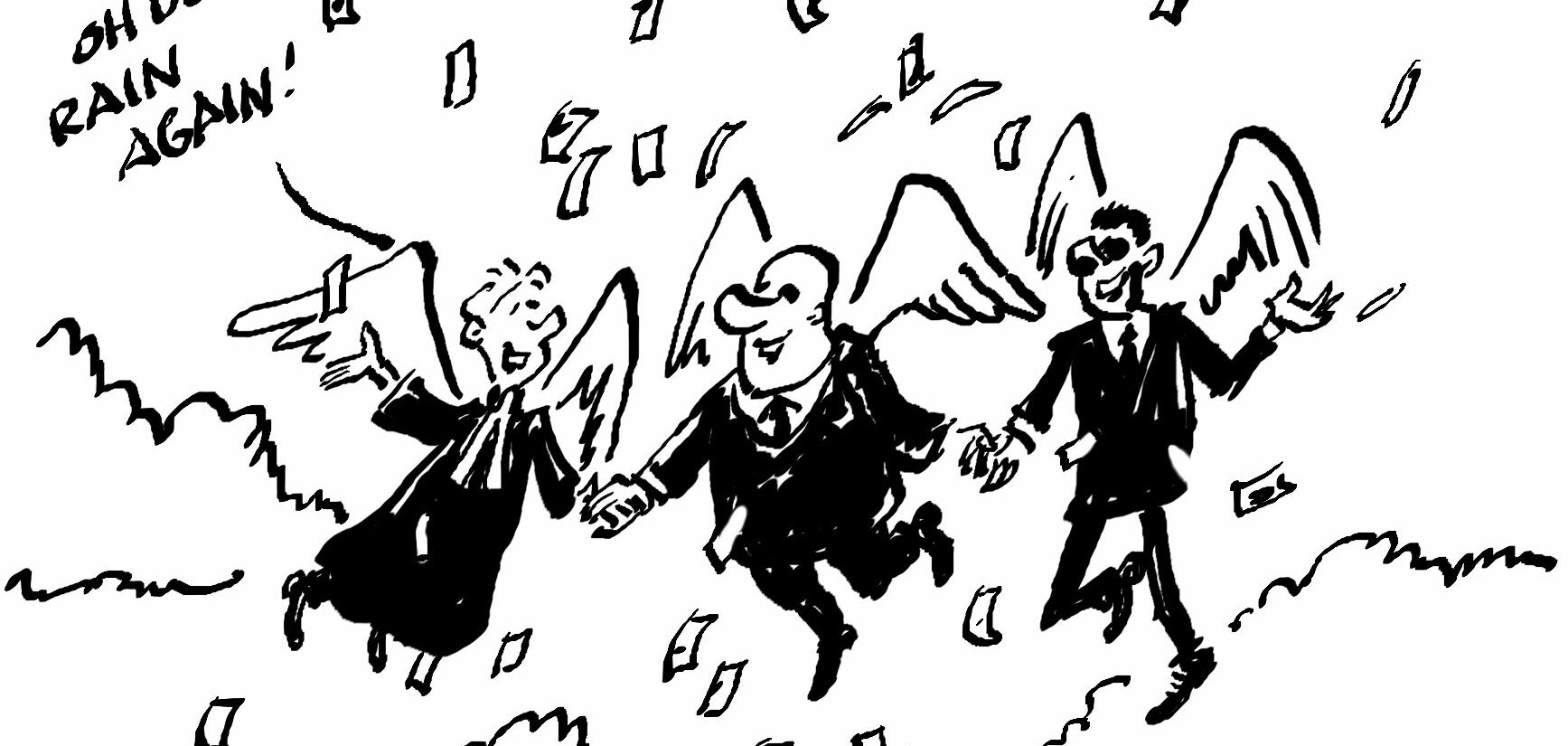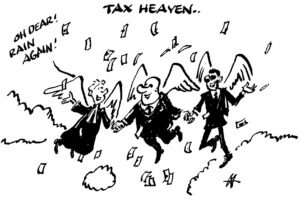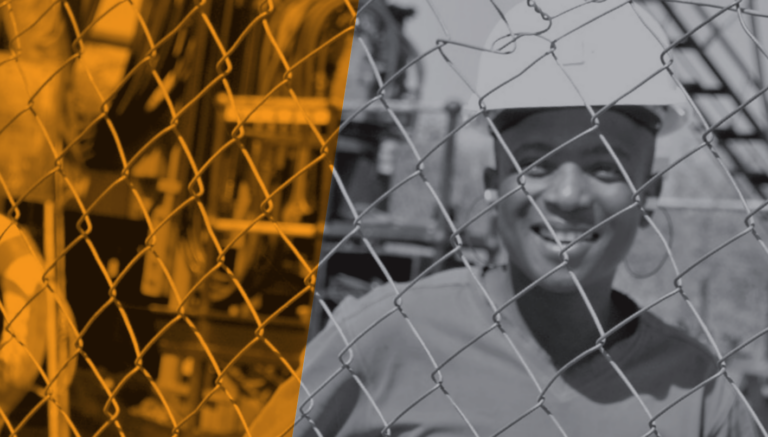
“Fighting fire with fire”
Three guest speakers set out their approach and vision on regaining control over multinationals and made SOMO’s 40th anniversary debate an unforgettable event.

The speakers and audience could have continued the discussion for hours, as was clear from the number and diversity of questions put to the three speakers: Eva Joly (Member of the European Parliament), Martyn Day (human rights lawyer) and Ewald Engelen (financial geographer at the University of Amsterdam) after their thought-provoking presentations.
On December 2, around 250 guests poured into the historic auditorium of the Academy Building at Domplein in Utrecht. This mixed group of people, which included representatives of NGOs and companies, policy makers and students, listened to the arguments of three prominent speakers and participated actively through social media (#Somo40)(opens in new window) and an interactive opinion poll tool. All three speakers said that the current legal, political and economic systems are not functioning properly. They added that the unethical behaviour of multinationals can be addressed by adjusting existing rules and laws, buying fair trade products and naming and shaming.
Too complex a system
Eva Joly argued that change is slow, but said she has great confidence that we can tackle injustice. She spends a lot of time fighting tax evasion and corruption. Large companies spin complex webs around them, for example, by using transfer pricing techniques. It is often unclear and difficult to investigate who owns multinational companies. Joly called for the registration of ‘beneficial ownership’ and a simpler tax system, involving the payment of taxes where economic activity takes place. This would allow developing countries to at least generate revenue from their raw materials and these revenues would be more than the amount received in development aid.
Joly urged everyone to continue to ask critical questions. In the nineties, Joly investigated the French oil company Elf Aquitaine, which lead to the conviction of dozens of people in the oil industry. She discovered that multinational companies not only act unfairly, but that the system provides opportunities for tax avoidance and evasion. She felt that the rules of the game needed to change and decided to go into politics to fight for better regulation of multinationals in the European Parliament.
Hold multinationals accountable for their actions
Human rights lawyer Martyn Day got straight to the point, saying that the Dutch tax system is ‘total crap’. “On paper, many policies sound good, but in practice those good intentions do not work. The countries do not hold multinationals responsible for their harmful acts worldwide and the legal system is not working properly, including in the Netherlands. The EU should ensure progress in this matter”, Day argued.
This combative human rights lawyer believes that the multinationals he sues must feel the pain. Fire must be fought with fire. For example, Day represents a fishing community in the Niger Delta, which has been affected by oil pollution by Shell. Day and his colleagues will continue until the company compensates the community for all damages caused by the oil pollution. Often, if a group of people challenges a multinational, it costs them 25-30 million British pounds.
The taming of the monster
Ewald Engelen argued passionately that banks are monsters that need to be tamed and ruined. According to Engelen, the economic crisis presents many opportunities for stakeholders to change their behaviour, but so far little has changed. “Neoliberalism is not dead, it is like a cat with nine lives,” says Engelen, who longs for a new paradigm.
How did it come to this? Politicians have used privatisation, deregulation and liberalisation to create a monster consisting of banks and other large companies. “We ourselves have created a world that serves the interests of large corporations. Their promise to provide prosperity, jobs and happiness gave them legitimacy, but this story was far too romantic. Multinationals were allowed too much say on rules designed to regulate them, resulting in harm to poor countries, workers and the environment. The regulation of banks is too important to be left to the banks. We should never allow that again. So do not look the other way, the media neither.”
Power to the people!
What else can we do to turn the tide? Joly mentioned the major influence consumers have when they choose specific products and where they buy them. For example, buying local vegetables or fair trade clothes or using ethical banks. Martyn Day highlighted the importance of action by civil society, such as the public protests at branches of Starbucks. Such initiatives and the use of social media increases the pressure on both companies and politicians. The online poll showed that the audience believed that naming and shaming big companies and pursuing them through the legal system when they act unethically or criminally are important ways of putting pressure on them.
Related content
-
Posted in category:Publication
-
 New brochure and training support human rights defenders to file complaints against multinationalsPosted in category:NewsPublished on:
New brochure and training support human rights defenders to file complaints against multinationalsPosted in category:NewsPublished on: -
-
 Dutch State accused of failing to prevent genocidePosted in category:Case
Dutch State accused of failing to prevent genocidePosted in category:Case Lydia de LeeuwPublished on:
Lydia de LeeuwPublished on:

